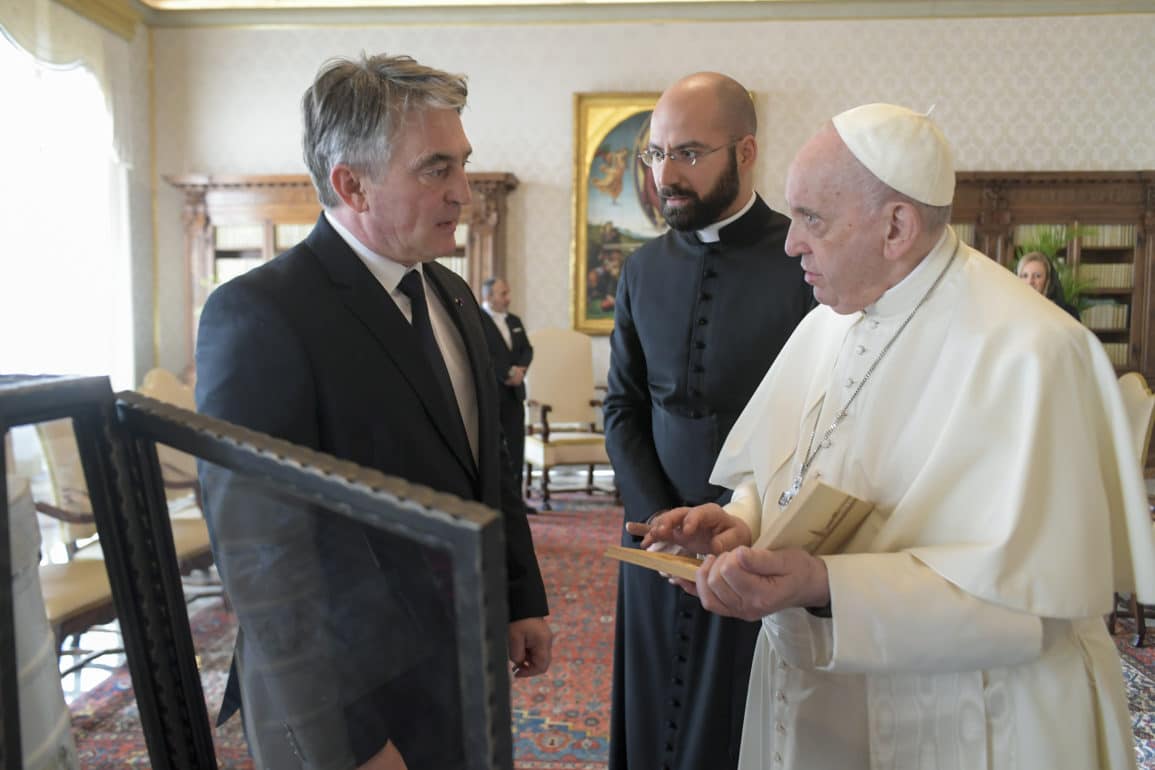The Holy Father Francis today received in audience His Excellency Mr. Željko Komšić, current Chairman of the Collegial Presidency of Bosnia and Herzegovina, who subsequently met with His Excellency Archbishop Paul R. Gallagher, Secretary for Relations with States.
During the cordial talks held in the Secretariat of State, appreciation was expressed at the good existing bilateral relations, and the priorities of the collegial Presidency were discussed. The parties then focused on the domestic situation of the country, reiterating the need to promote the legal and social equality of all citizens belonging to each constituent people.
Finally, attention turned to some regional matters, including the situation of the western Balkan countries and the enlargement of the European Union.
Željko Komšić is a Bosnian politician and diplomat who is the 6th and current Croat member of the Presidency of Bosnia and Herzegovina. He is also its current chairman, since 2021. Previously, he was a member of the national House of Representatives from 2014 to 2018.
Komšić already served as a member of the Presidency from 2006 until 2014 and was elected to the same office for a third term at the 2018 general election, thus becoming the second Presidency member overall, after Bosniak Alija Izetbegović, and the first, and so far only Croat member to serve more than two terms. He was sworn in on 20 November 2018, along with fellow newly elected Presidency members Šefik Džaferović (Bosniak) and Milorad Dodik (Serb).
Komšić was a prominent figure of the Social Democratic Party until he left it in 2012 to establish the Democratic Front a year later.
Although elected to the post of Croat member of the tri-partitive Presidency, many Bosnian Croats consider Komšić to be an illegitimate representative of their interests as he was elected mostly by Bosniak voters in the Federation, a Bosniak-Croat political entity that forms a majority of the country’s territory and whose residents are eligible to cast ballots for both the Bosniak and Croat members of the Presidency (while the Serb member is elected by residents of the Republika Srpska entity).









